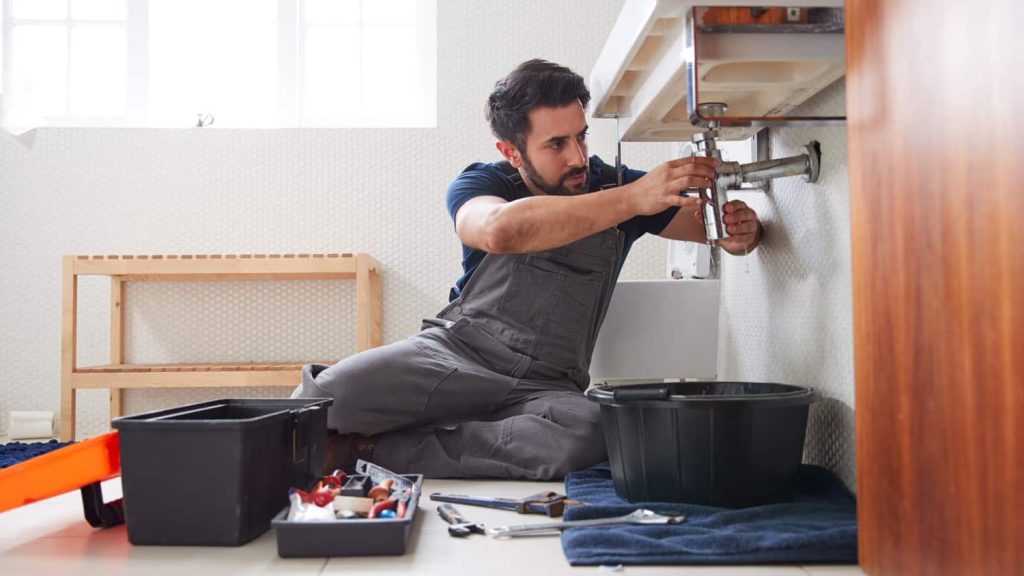 Table of Contents
Table of Contents
- Importance of Plumbing Inspections
- Modern Tools and Technologies
- Benefits of Up-to-Date Inspections
- Common Issues Found Through Inspections
- Tips for DIY Inspections
- When to Call a Professional
- Future Trends in Plumbing Inspections
- Final Thoughts
Importance of Plumbing Inspections
Plumbing inspections are critical to the maintenance of residential and commercial properties. They are vital because they help identify potential issues before they become costly repairs or cause significant damage. Property owners can adopt a proactive approach by integrating advanced techniques for smoke testing plumbing systems. This method detects leaks in inaccessible areas, providing an effective solution without damaging the infrastructure.
Initiatives support the consistent focus on thorough plumbing inspections. This program underscores the necessity of reducing water waste while maintaining system efficiency. By conducting regular inspections, homeowners ensure their systems are operating optimally, contribute to water conservation efforts, and reduce monthly utility expenses.
Modern Tools and Technologies
The advent of modern technology has revolutionized plumbing inspections. Video cameras are now commonly used to provide an in-depth view of a property’s plumbing network, uncovering invisible aspects to the naked eye. It is beneficial for diagnosing issues such as root intrusions or severe clogs. Moreover, technologies like smoke testing allow for the efficient location of leaks without unnecessary disruptions.
Key Innovations in Plumbing Inspection
- Video Camera Inspections
- Smoke Testing
- Sonic Leak Detectors
- Thermal Imaging Cameras
These technologies are not just about efficiency; they ensure accuracy and minimize damage during inspection. Using sonic leak detectors, for example, can help precisely identify specific leakage points, thereby facilitating prompt repairs and minimizing water loss.
Benefits of Up-to-Date Inspections
Keeping pace with the latest inspection methods yields significant benefits. Regular inspections, when performed with cutting-edge technology, can substantially lengthen the service life of your plumbing system. Undergoing these inspections means problems can be managed before they require extensive repairs. This practice is especially pertinent for older homes, which might contain outdated or deteriorating pipework.
Common Issues Found Through Inspections
Plumbing inspections frequently reveal a range of common issues, from minor leaks to significant blockages. Such inspections enable homeowners to address potentially hazardous conditions that could lead to more significant problems if left unchecked. Discovering corroded pipes, for instance, can highlight the need for preemptive fixes that could prevent extensive future water damage.
Typical Plumbing Problems Detected
- Leaking Pipes
- Corroded or Rusted Pipes
- Clogged Drains and Pipes
- Malfunctioning Faucets
Awareness of these issues allows homeowners to implement focused strategies to fortify the integrity of their plumbing system, ultimately safeguarding their property and improving its longevity.
Tips for DIY Inspections
While professional assessments are indispensable for comprehensive plumbing examinations, the homeowner can undertake some more straightforward tasks. By being observant of minor indicators like water stains or sounds of dripping, householders can hold off significant problems at bay. Routine checks for signs of mold, which could suggest lingering moisture issues, are also advised.
Simple DIY Inspection Steps
- Check under sinks for leaks.
- Listen for dripping water with all fixtures off.
- Look for signs of mold or mildew.
- Ensure drains are flowing freely.
Incorporating these straightforward checks into your home’s maintenance routine can help ensure the plumbing system remains functional between professional evaluations.
When to Call a Professional
Despite the efficacy of DIY approaches, resolving complex plumbing issues requires professional expertise. Cases involving persistent leaks, unusual water pressure variations, or strange noises may indicate more serious plumbing concerns requiring specialized tools and skills. It is essential to recognize when a problem is beyond the scope of home DIY projects to avoid exacerbating the issue.
Future Trends in Plumbing Inspections
Due to rapid technological advancements, the future of plumbing inspections is poised for transformation. Emerging trends highlight the development of smart plumbing systems that incorporate real-time monitoring. This technology allows immediate alerts to problems, facilitating swift action to prevent compounding issues. These developments promise to make plumbing systems more reliable and less intrusive over time, increasing efficiency and user satisfaction.
Final Thoughts
Consistent checks are crucial for upholding the performance and effectiveness of your plumbing system. By leveraging modern technological advancements and maintaining awareness of potential issues, property owners can effectively guard against plumbing-related complications. As inspection technologies evolve, they offer exciting possibilities for enhancing maintenance protocols, ultimately ensuring robust and well-functioning plumbing systems tailored to modern needs.
